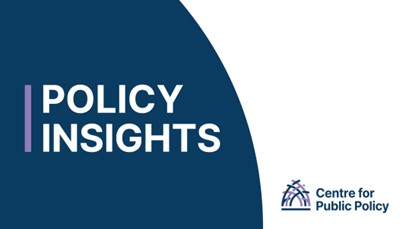Policy Insights: What’s landing on the First Minister’s desk?
Published: 7 May 2024
Part Two: As the Scottish Parliament elects John Swinney as the new First Minister, we ask key voices from across the University about the policy challenges his new Cabinet will be facing.
John Swinney has been elected Scotland’s new First Minister and looks set to establish fresh Cabinet. We asked key voices from across the University what’s likely to be on the First Minister’s desk on day one, as he seeks to set his vision for government. This two-part policy insights piece looks at the electoral significance of the last week in politics, the fiscal and climate policy challenges ahead and the implications for government.
In part two we look at the climate policy decisions the government is facing alongside the constrained fiscal environment, with Prof Jaime Toney and Prof. Graeme Roy.
Prof. Jaime Toney, Director of the Centre for Sustainable Solutions, Professor in Environmental and Climate Science (School of Geographical & Earth Sciences)
The interactions across climate policy
The First Minister will need to reconcile the Government’s world-leading ambition to deliver a just transition to net zero and a climate resilient economy just weeks after declaring that their climate change policy actions are not robust enough to achieve the interim target of 75% emissions reduction by 2030.
Moving at pace will continue to pose a challenge, because climate change policy needs to be embedded systematically across a wide range of plans and strategies, for example, adaptation, the just transition, land-use and agriculture, and energy. Taking a systems approach requires an understanding of the system from diverse vantage points, which can take time to map.
In addition to net zero targets, successful climate change policy action will need to look beyond carbon to deliver multiple benefits across Scotland’s National Outcomes. This will mean not only filling evidence gaps but understanding the interactions across policy sectors.
Perhaps the two greatest challenges that the Government faces are:
- Implementing policy frameworks (i.e., National Planning Framework 4) to enable and share learning across the growing number of place-based initiatives that are uniting public, private and third sector organisations with local communities. This is a difficult pathway, but finding holistic solutions to climate mitigation and adaptation is essential.
- Ensuring that the decisions that are taken today build long-term, resilient pathways that look after the wellbeing of future generations.
Solving these challenges will play out in a financially constrained environment, making it crucial for the First Minister to make difficult decisions across strategic priorities and leverage private sector investment without strong incentives in return.
Solving these challenges will play out in a financially constrained environment, making it crucial for the First Minister to make difficult decisions across strategic priorities and leverage private sector investment without strong incentives in return.
Prof. Graeme Roy, Professor in Economics, Deputy Head of College and Assistant Vice Principal at the University of Glasgow, Senior Fellow Centre for Public Policy.
A familiar Budget environment
Whilst we’ll soon have a new leadership team in the Scottish Government, the Budget environment that they will inherit will remain familiar in its challenges and constraints.
Whilst the total amount of funding the government has available for public services this year (and over the next few years) is increasing, commitments in health, social security and public sector pay are squeezing the funds available for many areas of national and local government spending.
Pressures are particularly acute in capital, with the amount of money that the government has for building roads, new schools and hospitals, falling 20% over the next five years.
Perhaps the greatest challenge facing any team of new Ministers isn’t how to balance the books in the near term, but how to inject greater pace and scale of effort into the transformative change required to deliver long-term fiscal sustainability.
In Scotland, successive governments have spoken about the need for reform, including in seeking greater efficiencies, focussing upon prevention and a greater sharing of resources. But progress remains slow, and with increasing demands on budgets from our ageing population and climate change, a renewed conversation about what we can and can’t afford – and how we pay for public services – is needed.
The Centre for Public Policy recently hosted a Spotlight Podcast episode on Minority Government with Geoff Aberdein, Former Chief of Staff to Alex Salmond, about how minority government might work in practice and what it means for the political and policy process. You can listen here.
Read Part 1: Christopher Carman, Lay of the Political Land here
First published: 7 May 2024


